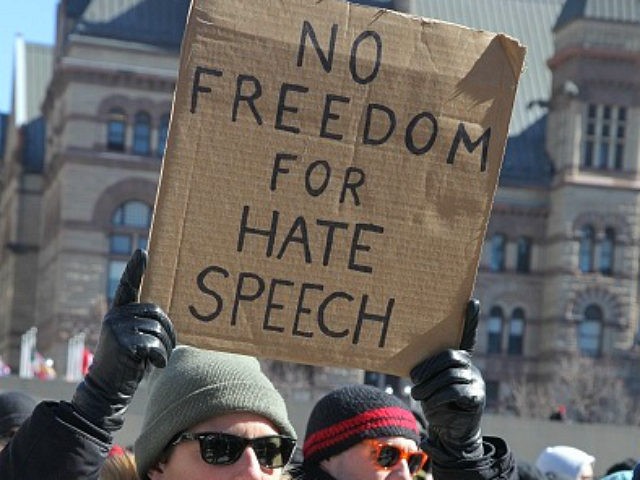A student at Princeton University argued that “hate speech” isn’t protected by the First Amendment because it is a “harmful action” in a Tuesday column for the Daily Princetonian.
Princeton student Change Che argues in an op-ed for the Ivy League school’s student newspaper that “hate speech” isn’t protected by the First Amendment because it is a harmful “act” rather than simply speech.
Che first introduces the concept that “hate speech” is an “act” after referencing the book How to Do Things with Words by J.L. Austin, a British philosopher of language who argued that speech often becomes an act when it is used to express an intention. “Expression is but one function of speech,” Che argues, claiming that “harming others with language” isn’t simply expression but instead a “speech act.”
The modern discourse of political correctness has exposed a fundamental ambiguity in the language of our founding fathers, an ambiguity that philosophy has been attuned to since the Middle Ages — such as in St. Augustine’s “On Lying” — and formalized by J.L. Austin in his seminal work “How To Do Things With Words.” The ambiguity concerns the dualistic dimensions of speech: as a mode of expression and as a mode of action. While modern discourses surrounding the First Amendment equate freedom of speech with freedom of expression — assuming that speech is primarily used as a mode of expressing one’s ideas — expression is but one function of speech. And in the context of harming others with language, it has overshadowed another equally important nature of language: the speech act.
Che explains his position on speech by contrasting the words “gay” and “f*ggot.” Che argues that “f*ggot” carries with it a “distinct act,” which he claims equates to stigmatizing homosexuality.
To see this, we might compare the use of the word “gay” and “faggot” in terms of the actions that they contain. Both words are used to refer to the same type of individual and hence could easily feature in the expression of one’s opinions. However, while the former does not seem to do anything apart from its denotative function, the latter does much more than the conventional use of language as expression — it has a distinct act: the act of demonizing, abnormalizing, or stigmatizing that particular identity. Hence, to use the latter term to describe gays today is to perform an act of condemnation more so than it is to communicate meaning. We shudder at such politically incorrect language, not because of its intended meaning, but because of its unintentional act — one that attaches a stigmatized meaning to a particular group and intends to deprive them membership into society.
Che, who is a comparative literature major, finishes by arguing that society should “abandon the assumption that actions speak louder than words because, more often than not, words do more than actions.”
This column wasn’t Che’s first foray into social justice commentary. His previous columns for the Daily Princetonian include “Why men should buy women their birth control” and “Seeing the big picture: Diversity in eating clubs.”
Tom Ciccotta is a libertarian who writes about economics and higher education for Breitbart News. You can follow him on Twitter @tciccotta or email him at tciccotta@breitbart.com

COMMENTS
Please let us know if you're having issues with commenting.